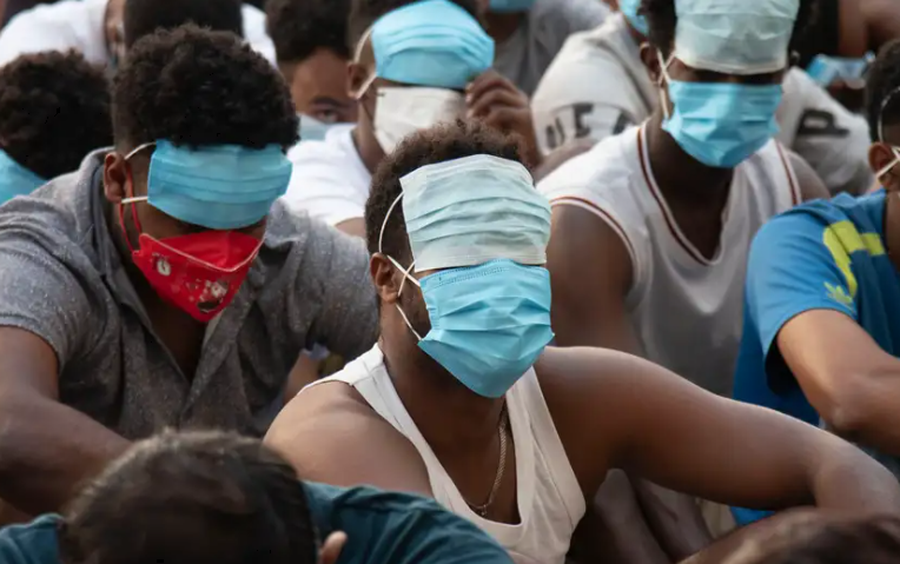
Interpol says that fraud centers, which use victims of trafficking to carry out their criminal activities, have become a global danger.
Human trafficking, "fueled" by online fraud, has increased significantly worldwide, according to a study on recent criminal trends conducted by the international police agency, Interpol.
The trafficking center scheme, where victims were forcibly forced to participate in online scams, was initially established in Southeast Asian countries, but investigators have recently uncovered the same scheme in other regions.
How has the extent of the map changed?
According to Interpol, the victims are from 66 different countries on all continents, making the phenomenon a "global crisis" and involving thousands of people.
Fraud hubs are also growing rapidly in the Middle East, West Africa – the fastest-growing region – and Central America.
Victims are often lured by false job offers and held hostage through fraud. Many are blackmailed with debt, raped, sexually exploited, and in some cases tortured or raped.
Within these centers, they are forced to engage in online fraud, mainly targeting people abroad, with the aim of stealing their money.
In 2024, an Interpol operation uncovered dozens of cases where victims were forced to commit online fraud, including the raid of a fraud "industry" in the Philippines.
In the same year, police dismantled a trafficking base in Namibia, where 88 young men were being forcibly forced to defraud others.
New technologies are "powering" this new trend in the criminal world. Artificial Intelligence is creating fake job ads and "deepfake" profiles for sexual blackmail.
Who are the victims?
Interpol says the number of people falling prey to this network has increased significantly. While previously the victims of trafficking were mainly Chinese speakers, and the countries of origin were China, Malaysia, Thailand or Singapore, now the trafficked also come from countries such as Latin America, East Africa and Western Europe.
"The fight against this rapidly growing global threat requires a coordinated international response," said Interpol's acting chief of police services, Cyril Gout.
Who are the traffickers?
According to the report, about 90% of traffickers are from Asia, and the rest from Latin America and Africa. About 80% of them are men, 61% of whom are aged 20-39.
The online fraud hubs were initially centered in Cambodia, but later trafficking bases were also discovered in Laos and Myanmar. Today, similar illegal activities have been identified in at least four Asian countries. Evidence suggests that the same scheme is spreading to other regions such as West Africa, where financial cybercrime is common.
Interpol's findings warn that the spread of such criminal networks requires urgent and coordinated action in order to interrupt the trafficking route and assist victims.
Another innovation of this trafficking, according to Interpol, is the combination of these bases with other major transnational crimes, thus requiring a coordinated response on a global scale.
The trafficking routes used for the fraud centers are also used for drug and firearm trafficking, thus also putting wildlife at risk, especially for species such as tigers and pangolins./ DW (A2 Televizion)











